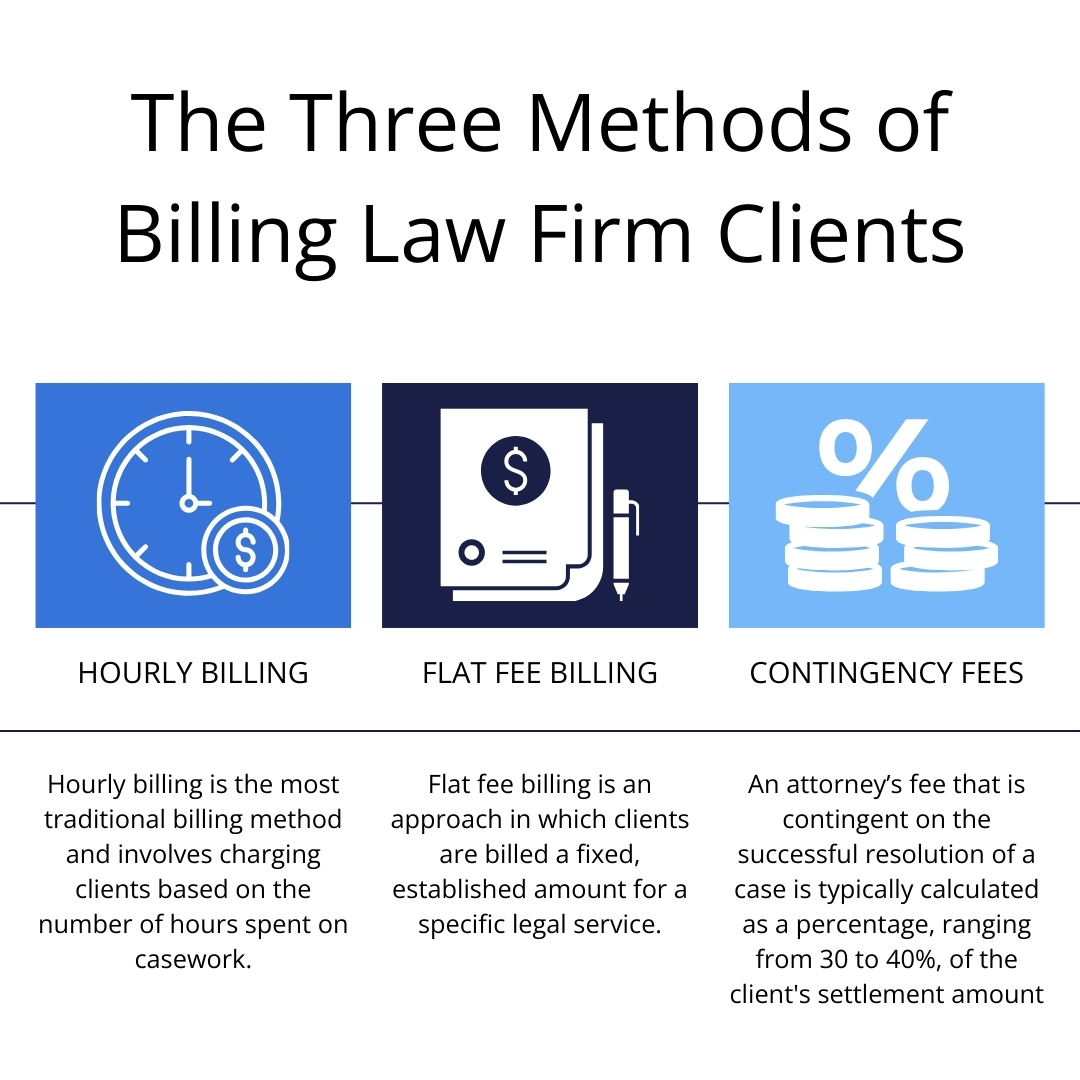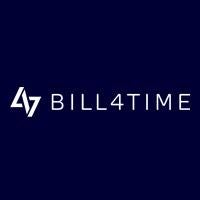Billing can often be a challenging aspect of law firm management. Along with being a time-consuming process, outstanding bills and poor cash flow can have a negative effect on law firm profitability. Some law firms wait 60 or 90 days for payment after an invoice is sent, and if it’s still not paid in 120 days, they may write off the debt or offer a steep discount.
No business can function if bills aren’t paid – including law firms. Legal time tracking software and a uniform billing process ensure your law firm gets paid on time – and it all begins before you even take on the client.
Why Does Billing Matter to a Law Firm?
Precise and timely billing has a direct impact on a firm’s financial stability, client trust, ethical compliance, and long-term growth.
Here are the ways that billing impacts your law firm, both positively and negatively.
Cash Flow
Accurate and timely billing provides cash flow for your firm, which you need to cover your overhead costs, pay your team’s salary, and reinvest in your firm to capitalize on growth opportunities. If you don’t have that cash flow because of slow or error-filled billing, you may not be able to operate efficiently and won’t be able to reinvest in your staff.
For example, with adequate cash flow, you can cover your regular operating expenses and have full visibility into your firm’s financial picture. You know where you stand so you can allocate resources to training, technology upgrades, expansions, or other opportunities.
Client Relationships
Transparency in billing plays a key role in client satisfaction and retention. When clients know what to expect from the billing process and see a detailed breakdown of the legal services they receive, they understand the value and feel more trust in the firm. Conversely, if you have vague bills or inaccuracies, they may think they’re being overcharged or the bill is “padded.” This affects both the client relationship and your firm’s reputation.
For example, itemized invoices and accurate timekeeping – which you can reference to address client billing questions – give clients confidence that you performed the work you billed.
Resource Allocation
Efficient billing practices ensure your firm can allocate resources effectively. You have full visibility to assign your team to projects based on their current workload or productivity, optimizing your firm’s time management. If your billing processes are inaccurate or inefficient, you could end up devoting resources that would be better spent elsewhere.
For example, you could be consistently undercharging for a service or failing to record time that you spend on casework. Regularly reviewing your billing reports allows you to view the trends and evaluate your profitability to find areas for improvement.
Legal Compliance
Accurately tracking billable hours is crucial to complying with lawyer billing ethics. Billing errors or unethical billing practices, such as upbilling, can have devastating consequences for your firm’s reputation and your practice, including fines or disciplinary action.
For example, submitting an invoice with incomplete summaries or non-standard descriptions of services – such as “email client” – isn’t unethical, but it may be suspicious to clients. However, padding expenses is an unethical practice that defrauds clients.
What Are the Three Methods of Billing Clients in a Law Firm?

Law firms are increasingly offering alternate methods of billing, but the three most common methods of billing law firm clients are hourly billing, flat fee billing, and contingency fees. The way you use and implement each will greatly affect how and when clients pay their bills. Here’s how these billing methods are structured in law firms:
Hourly Billing
Hourly billing is the most traditional billing method that involves charging clients based on the number of hours spent on casework. Lawyers record the time spent with a detailed description of the tasks performed, typically in 6-minute increments, and charge an agreed-upon hourly rate. However, this rate can vary based on the type of law, geographic location, and the lawyer’s experience level.
This method of billing offers several advantages, including transparency for the client, cost control, and flexibility. For example, if the case proves more complex than the lawyer initially thought, they’ll be able to bill for the extra work – which isn’t an option with some other types of billing.
Flat Fee Billing
Flat fee billing is a method of billing in which clients are billed a fixed, established amount for a specific legal service. The scope of work is clearly defined at the start, with the flat fee, so the client is prepared. Often, clients pay the full amount of the fee upfront, or they pay a portion upfront with the remainder due when the case or services are complete. This is often helpful for clients because they’re prepared for the total costs in advance, and the lawyer doesn’t have to concern themselves with detailed timekeeping.
Typically, flat fee billing is used for routine casework, such as drafting a will, in which the lawyer has an expectation of the work involved. Otherwise, the case could extend beyond the scope or have a lengthier process, which eats into profits.
Contingency Fees
Contingency fee billing is a method in which the attorney’s fee depends on the successful outcome of the case. This is determined on a percentage basis, which is typically 30 to 40% of the client’s settlement. The fee is determined in advance and should follow the guidelines outlined in ABA Rule 1.5. If the case is unsuccessful, the lawyer doesn’t receive a fee but may charge other costs associated with the case.
This method of billing is often used in personal injury, medical practice, and other civil litigation cases. It provides equal access to justice for clients who may lack financial resources, and the lawyer has a strong incentive for success with the case. However, the risk falls primarily on the lawyer, which is why it’s not used for cases like criminal defense.
What Are Legal Billing Duties That Promote Timely Payments?
Legal billing duties cover a wide range of activities, from tracking time to drafting invoices to sending them to clients at regular intervals. Having a standardized legal billing process is the best way to promote timely payments, even before your firm takes a case. Some of these duties include:
Tracking Time Accurately
Accurate timekeeping is the foundation of a robust billing process. This ensures that all work performed for a client is accurately recorded – neither under- nor overinflated – and can be included in the bill. This also provides a reference for client questions or disputes.
For example, the best law firm billing software should allow you to log your hours with automated timers to track every moment spent on a client case, including phone calls, email responses, or court appearances.
Creating Transparent and Detailed Invoices
As mentioned, detailed and transparent invoices about the services rendered and the time spent on each task help clients understand what they’re paying for and the value they’re receiving. All of your invoices should have a breakdown of the specific tasks, time spent, agreed-upon rate, and any applicable expenses.
For example, don’t use block billing. What is block billing? It’s when you group a bunch of individual billable tasks into one collective billing entry with a total time, making it difficult for clients to fully understand how you spent your time. Some sample attorney billing entries of block billing are “drafted pleadings, sent email to client, phone call with client (1 hour)” or “prepared for court hearing, filed pleadings, met with client (3 hours).” Instead, it’s best to break these down with detailed descriptions, including time spent on each individual task for clarity and transparency.
To illustrate, a better example would be “Prepared motion for temporary orders and proposed order (.5 hours); emailed same motion and proposed order to client for review (.1 hours); received call from client to discuss edits to same motion and proposed order (.3 hours); implemented requested edits from client per phone discussion (.1 hours).” This example demonstrates more value to the client and gives a clear picture of how you spent that entire hour.
Following Regular Billing Cycles
Regular billing cycles give clients reliable billing expectations and help your law firm ensure steady cash flow. The schedule you set depends on your firm, but they’re typically monthly, bi-monthly, or based on milestones in the case, allowing clients to budget for their expenses – and pay on time.
Upon your initial consultation with the client, you should go over the billing process and the billing cycle. For example, if you’re billing according to case milestones, you can prepare the client that they will receive a bill after the serving of a suit, court filing, deposition, date of trial, or after the conclusion of the trial.
Distributing Invoices Efficiently
A big part of an efficient billing process is sending out invoices according to the schedule you set. If you delay your invoices, you’re delaying your payments.
Offering Multiple Payment Methods
Giving clients multiple payment options increases the likelihood of on-time payments. Clients want to be able to pay their invoices online, from any device or location, without the hassle of mailing checks, making phone calls, or using third-party services and integrations.
Proactively Communicating and Following Up
You should have open lines of communication with clients and follow up on outstanding invoices to address any concerns or issues. Include payment reminders and receipt of payment in your billing process, and make sure you’re available to address any client questions about their bills to encourage timely payments.



 />i
/>i

